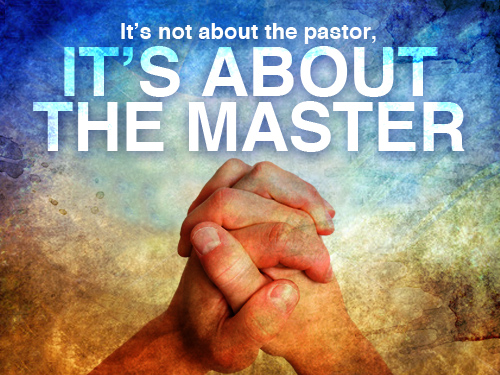(Luter to speak at Evangelism Conference).
Fred Luter Jr. was a street preacher in the Lower Ninth Ward in New Orleans when, in 1986, he was called to serve as pastor to a small congregation on Franklin Avenue, a mostly black area in the Crescent City.
Called to the ministry three years earlier, Luter, although knowing the congregation had been through some difficult years, committed to his first pastorate.
Now some 25 years later, that congregation has grown to a 7,000-plus membership, has survived a devastating hurricane, is in the process of building a new $26 million facility in New Orleans East and its pastor is one of the top leaders in the Southern Baptist Convention.
Luter will be one of the featured speakers at the State Evangelism Conference at Oklahoma City, Southern Hills, Jan. 30-31.
From the 1940s through the 1960s, Franklin Avenue Church was an all-white SBC church. Then in the 1970s, whites began to move out of the area, and blacks moved in, and since that time, the congregation has been a predominantly black church.
Luter said he committed himself to encourage the people by preaching, teaching and living the Word of God.
“From a small mission church to one of the largest congregations in our city, our belief has always been that God rewards faithfulness,” Luter said.
By 1989, a second Sunday morning worship service had been added, and in 1993, a third was started.
In 1997, the congregation moved into a new 2,000-seat auditorium; in 2002, Franklin Avenue started a satellite church in New Orleans East, and in June 2005, purchased 90 acres of land in New Orleans East, where its new facilities will be built.
On Aug. 29, 2005, Hurricane Katrina flooded the church buildings with nine feet of water. In January 2006, the church started worship services in New Orleans, Baton Rouge and Houston, Texas. Luter, while living in Birmingham, Ala., traveled to these cities, as well as across the United States to minister to displaced members.
In April 2008, the members of Franklin Avenue moved back into their renovated auditorium with two worship services attended by more than 4,000 members and guests. The church is now one church in three cities, with Sam Young leading the Houston church and Titus White leading the Baton Rouge Church. Because of the displaced members, the New Orleans services can be seen live over the Internet every Sunday morning.
In spite of losing half of the New Orleans congregation after Katrina, and numerous invitations to move to a new pastorate, Luter stayed with his people, and was asked to serve on the mayor’s Bring Back New Orleans Commission.
Although the church had a great financial burden after the hurricane, the congregation stepped out on faith and gave $44,000 through the Cooperative Program in 2007, increased its CP giving to $205,000 in 2008, $250,000 in 2009 and $260,000 in 2010.
In 2010, Franklin Avenue reported undesignated receipts of $4,407,217; Cooperative Program contributions of $261,798 and $479,540 in total missions expenditures.
Under Luter’s leadership, Franklin Avenue has started 15 missions.
Luter said the church will always have a presence on Franklin Avenue.
“When the new facility is completed, the current location will continue to be used for activities and events such as the monthly food and clothing give away, gym activities, funerals and weddings,” he said.
Luter is a respected speaker/preacher across the county. He made headlines by being the first African-American to be elected to the Executive Board of the Louisiana Convention in 1992, and made headlines again in 2001, when he was the first African-American to preach the Southern Baptist Convention message.
At the Southern Baptist Convention in Phoenix in 2011, Luter was the first African-American elected to the office of first vice president. He had served as second vice president in 1995, following Gary Frost, who served in that position the year before, and was the first African-American elected to an SBC executive position.
Luter said despite Franklin Avenue’s growth and recognition, he wants members to continue to stay focused on what God has called them to do as a church.
“That calling is embodied in the church’s mission statement to spiritually impact our families,neighborhoods, city and state by exalting the Savior, equipping saints and evangelizing the sinner,” Luter pointed out. “It’s not about the pastor, it’s about the Master.”
Tim Gentry, evangelism group leader for the Baptist General Convention of Oklahoma, said Luter is the type of preacher Oklahoma Baptist pastors and lay leaders look forward to hearing.
“He’s inspirational, practical and passionate,” Gentry said. “After Hurricane Katrina destroyed his congregation’s church building in August of 2005, he had many opportunities to go elsewhere, but he followed his calling and his shepherd’s heart to gather the flock back together in New Orleans.”
Gentry added that Luter is expected to be elected president of the Southern Baptist Convention next summer when the annual meeting is held in his hometown of New Orleans.
Also speaking during the conference will be Robert Smith, professor of divinity at Beeson Divinity School in Birmingham, Ala.; Roc Collins, pastor of Indian Springs Church in Kingsport, Tenn.; Bob Pitman, evangelist from Muscle Shoals, Ala.; Rob Zinn, pastor of Immanuel Church in Highland, Calif.; and Oklahoma pastors Emerson Falls, Oklahoma City, Glorieta; Jeremy Freeman, Newcastle, First; Shane Hall, Lawton, First, and BGCO President Doug Melton, Oklahoma City, Southern Hills.






